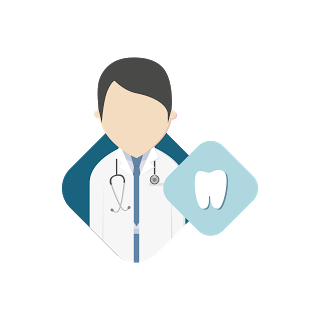What Is Dds Dmd? Your Dental Degree Guide

The pursuit of a career in dentistry is a multifaceted journey, filled with numerous pathways and specialties. At the heart of this journey lies the fundamental question: what is the difference between a DDS (Doctor of Dental Surgery) and a DMD (Doctor of Dental Medicine)? Both degrees lead to the same professional outcome—a license to practice dentistry—but they differ in title and, to some extent, in focus. Understanding these differences is crucial for aspiring dentists and patients alike, as it can shape the approach to dental care and education.
Historical Context: Evolution of Dental Degrees
The origins of the DDS and DMD degrees are rooted in the historical development of dental education. The Doctor of Dental Surgery degree was first conferred by the Baltimore College of Dental Surgery in 1840, reflecting the surgical aspects of dentistry. Later, in 1868, the Harvard University Dental School began awarding the Doctor of Dental Medicine degree, emphasizing the medical aspects of dental practice. This divergence in degree titles reflects a broader discussion within the dental community about the nature of dental practice: whether it is more aligned with surgery or medical science.
Curriculum and Educational Experience
Despite the difference in degree titles, the curriculum for both DDS and DMD programs is virtually identical. Both degrees require four years of graduate-level education after completing a bachelor’s degree. The educational journey includes intensive study in subjects such as anatomy, biochemistry, pharmacology, and radiology, alongside extensive clinical training. Students in both programs learn about various dental specialties, from orthodontics and pediatric dentistry to oral surgery and prosthodontics. The clinical training is comprehensive, equipping graduates with the skills to diagnose, treat, and prevent diseases and conditions of the teeth and mouth.
Licensure and Career Paths
Upon graduation, whether with a DDS or DMD, dental school graduates must pass the National Board Dental Examination (NBDE) or the Integrated National Board Dental Examination (INBDE), as well as a clinical exam administered by their state’s dental board, to become licensed dentists. The licensure process is uniform across the United States, ensuring that all dentists meet the same standards of competency. After licensure, dentists can choose to pursue general dentistry or specialize in one of the nine recognized dental specialties, which may require additional education and certification.
Practice Differences: Perception vs. Reality
In practice, there is little to no difference in how a DDS or a DMD approaches patient care. The choice between pursuing a DDS or DMD often depends on the dental school’s tradition rather than a difference in educational content or professional capabilities. Some argue that the DMD degree might place a slightly greater emphasis on the medical and diagnostic aspects of dentistry, while the DDS degree could be seen as focusing more on the surgical procedures. However, these distinctions are not rigid and can vary greatly depending on the individual dentist’s interests and the dental school’s curriculum.
Conclusion: United in Purpose
In conclusion, while the titles DDS and DMD may suggest different foci or approaches to dentistry, the reality is that both degrees represent a comprehensive education in dental science and practice. The shared goal of these degrees is to equip graduates with the knowledge, skills, and ethical foundation necessary to provide high-quality patient care. As the dental profession continues to evolve, with advancements in technology, materials science, and our understanding of oral health’s connection to overall well-being, the essence of both DDS and DMD degrees remains unchanged: to serve as the foundation for a lifetime of learning, service, and excellence in dental practice.
Frequently Asked Questions
Is a DMD or DDS better for specializing in dentistry?
+Both DMD and DDS degrees are recognized paths to dental specialization. The choice between them does not affect one's ability to specialize but rather depends on the tradition of the dental school one attends.
Do patients care whether their dentist has a DMD or DDS?
+Generally, patients are more concerned with the quality of care and the dentist's expertise and bedside manner than with the specific degree they hold. Both DMD and DDS holders are qualified to provide comprehensive dental care.
Can I become a dentist with only a bachelor's degree?
+No, to become a licensed dentist in the United States, one must complete a dental program accredited by the Commission on Dental Accreditation (CODA) and pass the necessary licensing exams. A bachelor's degree is typically required for admission to dental school, but it is the dental degree (DDS or DMD) that qualifies one to practice dentistry.
The Future of Dental Education
The dental profession is on the cusp of significant changes, driven by technological innovation, shifts in patient demographics, and a greater understanding of the interconnectedness of oral and systemic health. As dental schools evolve to meet these challenges, the core of what it means to be a dentist—whether holding a DDS or DMD degree—will remain steadfast: a commitment to providing compassionate, evidence-based care that improves the lives of patients and communities.